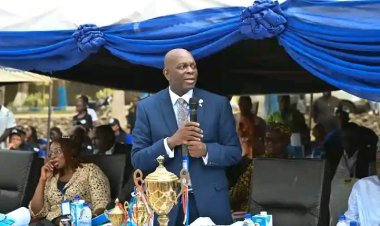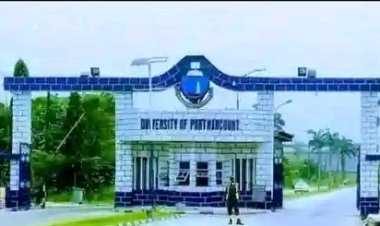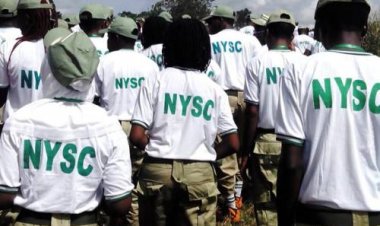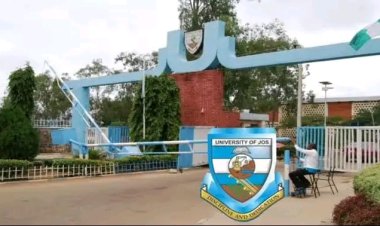SIFAX Group Chairman Highlights Potentials of Blue Economy at LAUTECH Convocation Lecture
Taiwo Afolabi, Chairman of SIFAX Group, highlighted the potential of Nigeria's blue economy during the 16th convocation lecture at Ladoke Akintola University of Technology (LAUTECH).
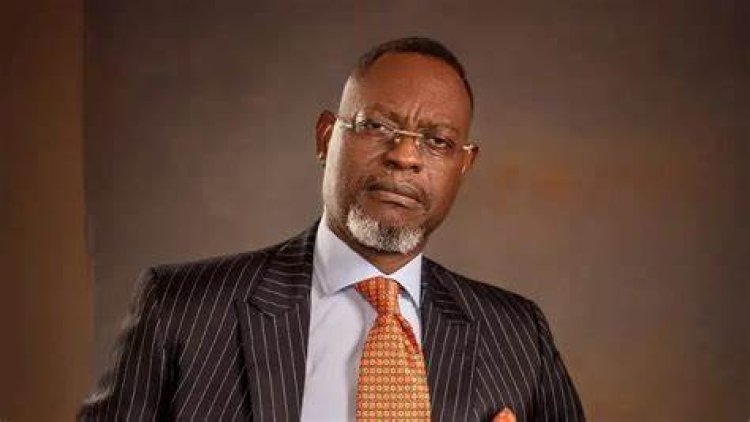
Taiwo Afolabi, Chairman of SIFAX Group, has identified coastal tourism and renewable energy generation as critical growth areas for Nigeria's blue economy. During the 16th convocation lecture at Ladoke Akintola University of Technology (LAUTECH) in Ogbomoso, Afolabi emphasized the importance of developing the country's maritime sector.
Speaking on the topic, "Towards a Sustainable Blue Economy and Marine Development in Nigeria: Trends, Challenges and Prospects," Afolabi highlighted the significant untapped opportunities within Nigeria's maritime sector. He underscored the necessity of shifting away from the nation’s dependency on a single-product economy—predominantly crude oil—to a diversified, multi-product economy.
Afolabi advocated for the development of Nigeria's coastlines to stimulate recreational and economic activities. "Coastal tourism development can provide socioeconomic benefits, especially as the government aims to diversify the economy away from crude oil," he stated. He also pointed out the potential of renewable energy sources, such as wind, solar, hydro, and tidal energy, in reducing the maritime sector's carbon footprint.
Offshore wind energy, generated by wind turbines, harnesses strong ocean winds to produce electricity. Solar energy, on the other hand, can power navigation and communication systems on ships and other floating structures. Afolabi emphasized the viability and importance of these renewable energy sources in supporting Nigeria's economic diversification and environmental sustainability.
SEE MORE: LAUTECH Issues Notice to Newly Admitted Students for 2023/2024 Academic Session
Afolabi suggested that Nigeria could learn from the Philippines, a leading nation in deploying seafarers in the global shipping industry. He stressed the need for a robust maritime educational curriculum that incorporates technology, industry trends, and the dynamic nature of the maritime sector.
Afolabi cautioned that tapping into the blue economy must be done responsibly and sustainably. He identified key sustainable practices, including promoting sustainable aquaculture, implementing modern environmental waste management, enhancing monitoring, control, and surveillance of Nigeria's territorial waters, improving maritime safety and security, preserving marine ecosystems, addressing pollution in coastal areas, enacting supportive laws for the blue economy, and ensuring proper regulation by relevant government agencies.
In conclusion, Afolabi’s lecture at LAUTECH highlighted the immense potential of Nigeria's blue economy and the strategic steps needed to harness these opportunities. His insights call for concerted efforts from the government, private sector, and educational institutions to drive sustainable development in the maritime sector.
READ ALSO: LAUTECH Acting VC Extends Congratulations to New NUGA Scrabble Chairman

 Chris Oyeoku Okafor
Chris Oyeoku Okafor 